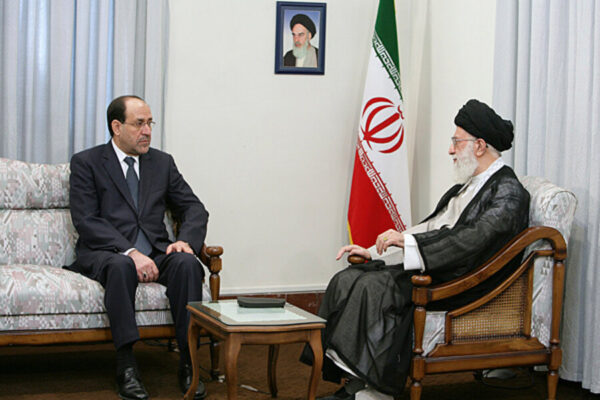
MalikiLeaks: When Sectarianism Rules Iraq
|
الاستماع للمقال صوتياً
|
By Reham Al-Hakim
WHIA/Iraq
From his residence in the United States, Iraqi activist, Ali Fadel, leaked six audio files of former prime minister and leader of the State of Law Coalition (SLC), Nouri al-Maliki, without revealing how he obtained the tapes Afterward, the social media in Iraq buzzed with comments, chatter, and speculations.
According to Fadel, Al-Maliki says that Iraq is on the verge of a “reckless civil war” as a result of projects by Muqtada Al-Sadr, head of the Sadrist movement, and that bloodshed is bound to follow suit, pointing out that he has himself trained fifteen military groups
Despite Al-Maliki denying these claims, calling them “fabricated,” the public has faith in the validity of the leaks, with a general consensus among his followers that Al-Maliki spoke in the audio clips and made statements that aligned with his typical speeches.
Within six released audio clips, the leaks detail Al-Maliki’s attempt to split the Shiite house from the Kurds, as well as his description of Iraq’s Sunnis as “haters” and “cowards,” with the exception of a few. He says that he is ready to fight “Najaf,” the residence of the leader of the Sadr Movement, Muqtada al-Sadr. Al-Maliki furthers, “the Shiites are in danger because the Baathists have risen to dangerously high ranks, entered the core of the state, and established parties led by Muhammad Al-Halbousi, the current speaker of parliament.”
Who is Nouri Al-Maliki?
In 2006, Al-Maliki was chosen to be the Iraqi prime minister in a joint American-Shiite choice, presuming that as an Arab, he would not be subject to Iranian influence, as far as an Islamic politician, he would also be close to the popular Shiite environment in harmony with the United States at the time.
In the very be, Al-Maliki appeared meek, obedient, and novice, until he gradually grew into a powerful, influential figurehead, and he started enabling his relatives and followers to reach high positions in the state, before becoming the supreme commander with the ability to marginalize Shiite forces and other institutions, such as the Supreme Council, the Sadrist Movement, and the Virtue Party.
In 2010, Al-Maliki formed a compelling political and institutional force for the second parliamentary elections. After nine months of conflict, maneuvers, and interventions from the Federal Court, the Iranian forces, and American troops, he succeeded. The Shiite and Sunni forces succumbed to the will of Al-Maliki. As a result, he created his second government, consisting of 45 ministers, the largest government in the history of Iraq. Then, under inhouse and international pressure, he reduced to 33 ministers,
Al-Maliki’s second government was a disaster for Iraq, the MENA region, and the world. He used his unilateral power and the state agencies, especially the security forces, against his opposing politicians, along with demeaning sectarian rhetoric. Financial and administrative corruption ran rampant during his reign with a massive rise in oil prices along with the availability of fiscal resources at the time causing what a so-called “explosive budget”. His leadership ended with the catastrophic fall of three provinces into the hands of the Islamic State of Iraq and Syria (ISIS).
Conspiracies Run Iraq
Al-Malki’s leaks reveal the corruption he instills in Iraq while proving that conspiracies work within his own beliefs and partisanship without any regard for the national interest. This paranoid rationale now governing the nation has entrenched hostility between all parties. However, the lack of justice and independent judicial investigations allows sectarianism and regionalism to thrive.
The leaks were a mixture of conspiracy, divisive rhetoric, threatening language, violence and intimidation, and a severe detachment from reality. Ahmed al-Yasiri, the head of the Arab-Australian Center for Strategic Studies (AACSS), considers the timing of these leaks an indication of Al-Maliki’s plan for a third government.
Following the withdrawal of the Sadrists, the people of Mosul and survivors of the Spider massacre, remind Iraqis of the collapse of the state in his time.
The leaks have proven that the events in 2014 did not come from an external conspiracy; but rather as a result of an internal conspiracy led by the “Dawa” party, and head and executed by its leader Nouri Al-Maliki.
Translated/Edited by Husam Ramadan
